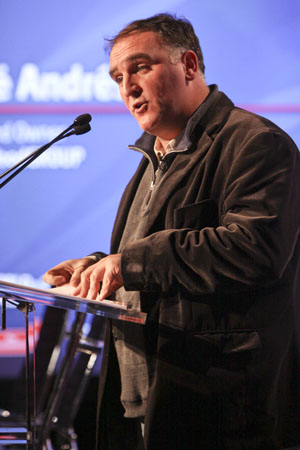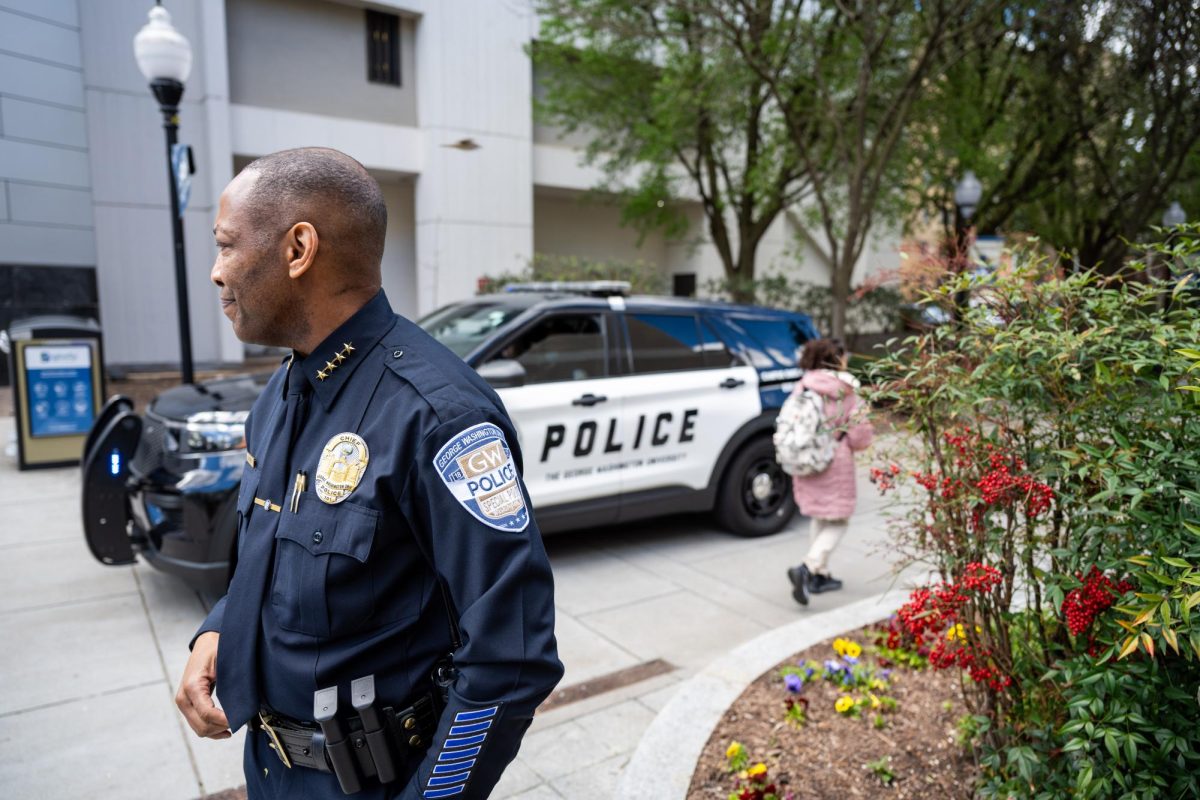
This post was written by Senior Staff Writer Lauren Hoenemeyer.
Michelle Rhee, who has faced months of controversy stemming from harsh budget cuts and hundreds of teacher layoffs, said she is used to getting yelled at.
Which is why Rhee, chancellor of D.C. public schools, said she had been looking forward to speaking in front of an audience of economists Monday morning at “The World in 2010 Festival” hosted by The Economist magazine in the Jack Morton Auditorium. A break from angry parents and principals, the two-day conference, billed as “a festival on the trends, issues and ideas that will shape the future,” also included speakers like John Oliver from The Daily Show, Research Director for the Center for American Progress Faiz Shakir and D.C. restaurateur and chef José Andrés.
“Economists have an incredibly interesting insight in public education and we need to tap into it,” Rhee said.
Rhee shared her optimistic view of the future of the public school system both in D.C. and across the nation, but also acknowledged the system’s dismal past and current failings.
“I think we will be having a lot more difficult conversations and different decisions about teacher quality on behalf of the children,” Rhee said of her view for the future of public education. “People won’t want to talk about this though.”
Citing grim statistic after grim statistic, Rhee discussed the dreary state of the D.C. education system.
“The longer children are staying [in] the District, the more they continue to fall,” Rhee said. “But, money is not the answer.”
She also described the impact of the declining rank of U.S. education in the global community.
“We are never going to regain our spotlight in the global marketplace until we look at public education,” Rhee said. “We have not solved our problems but we are falling behind the globe. Our kids won’t be competing against other kids in Nashville and San Francisco, but rather India and China.”
Even though D.C. faces tough economic issues in certain areas, Rhee believes that poverty seen in areas such as Anacostia should never interfere with a proper education.
“People say to me, as long as we have economic disparities there will be educational disparities,” Rhee said. “I highly disagree with that contention.”
She also defended her quest to eliminate teachers she has identified as underperforming.
“If we replaced the bottom 6 to 10 percent of teachers with average teachers we would catapult the country to achievement,” Rhee said. “And why don’t we do that? Because people don’t like to talk about removing people.”

Rhee continued to shrug off criticism when audience members asked questions concerning the poor state of the D.C. public school system.
An audience member asked Rhee when she was going to address the payment of teachers. She exclaimed, “I am trying!” and laughed with the audience.
She explained her two-tier compensation system proposal where teachers are able to eventually earn a salary more than $100,000 per year due to bonuses for student improvement.
“I thought, I am going to be the hero of D.C., offering six-figure salaries to teachers,” Rhee said. “But I couldn’t have been more wrong. The idea went down like a lead balloon and caused a firestorm.”
She concluded her speech with an anecdote of a dinner she shared with Warren Buffett, one of the most successful investors in the world and a D.C. public school graduate.
Rhee recalled his strange proposal.
“He said to me, ‘It is very easy to fix public education. All you have to do is make private schools illegal and assign every student to a public school through a random lottery,’” Rhee said.
Rhee said she found the proposal outlandish but added, “It is an example of how we need to extremely begin to reevaluate the current situation of education in D.C. and the nation.”




